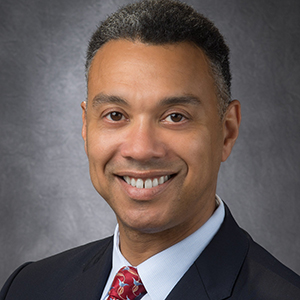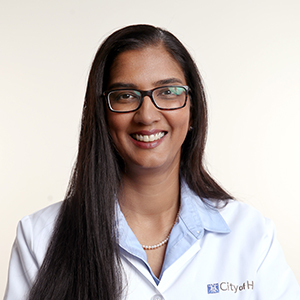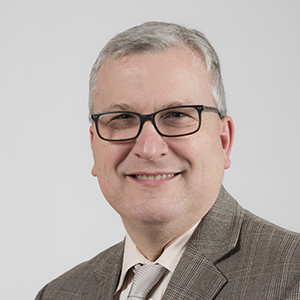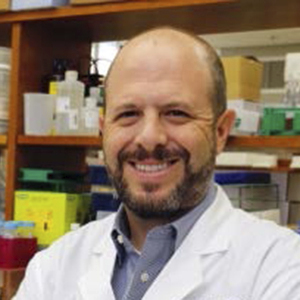Research We Fund
With hundreds of projects currently underway, we fund scientists through our academic grant programs and biotech partners through our strategic venture philanthropy initiative. Use the filters below to find an LLS-funded project.
For a better viewing experience, please use a larger device.
Making an IMPACT on hematology care in Georgia: The Georgia Blood Cancer Trials Network (BCTN)
Winship Cancer Institute is the only NCI-Designated Comprehensive Cancer Center in Georgia, the largest state by land area east of the Mississippi River, and 8th largest state by population. The Winship IMPACT program will leverage existing relationships throughout the state to bring hematology trials to patients in their communities. The goals are to strengthen our relationship with community sites and to increase opportunities for patients to access cutting edge trials throughout our state.
Program: IMPACTProject Term: Start Date: October 1, 2023 End Date: September 30, 2028

Christopher Flowers, MD
The University of Texas MD Anderson Cancer Center
Houston, TexasResearch Infrastructure to Promote Enrollment of Underserved Patients on Clinical Trials
The goal of the Clinical Trial Network of South Texas is to expand access to high quality clinical trials for under-represented minority (African American and Hispanic) patients with lymphoid cancers who receives care at the UT San Antonio Mays Cancer Center (MCC) and community oncology centers in South Texas. To achieve this goal, we will leverage the existing partnership between MD Anderson Cancer Center (MDACC) and its robust clinical trial infrastructure to identify and deploy suitable clinical trials. We also will strengthen the research infrastructure at MCC and community sites, including providing equipment, clinical trial navigation support, and oversight to successfully deploy trials. By establishing MDACC/MCC as a hub for clinical trials, developing the necessary research infrastructure at community oncology centers, and allowing patients to participate in clinical trials at their local oncology centers, this IMPACT program has the potential to improve clinical outcomes.
Program: IMPACTProject Term: Start Date: October 1, 2022 End Date: September 30, 2027
Establishing Hematology Clinical Trial Hubs within the City of Hope Community and Affiliate Network
City of Hope (COH) has embarked on a strategic initiative to optimize our clinical network and increase research capacity at our Community and Affiliate Network (CAN) sites in Southern California. I would like to spearhead this endeavor for the Hematology program at our new Irvine campus in Orange county, which is set to open in August 2022. We are employing a hub-and-spokes model, in which the Duarte main campus is the main research center, with 3-5 multi-disciplinary CAN sites ultimately designated as research hubs. These CAN sites (hubs) will serve geographically proximal practice sites (spokes), which will refer patients for treatment on clinical trials at either the CAN site itself or at the main Duarte campus. Following a 6-month pilot for optimizing staffing, investigational pharmacy setup, specimen and data collection in Irvine, an additional CAN site will be initiated each year over a 5-year period to allow a wider area of Southern California residents to have access to high quality and impactful clinical trials in Hematology. Our ultimate goal is to accrue 20-50 patients per year from the community, depending on the number of sites activated each year.
Program: IMPACTProject Term: Start Date: October 1, 2022 End Date: September 30, 2027
BRIDGE (Blood cancer Research Initiative Developing Greater Engagement) with community patients
The Weill Cornell Medicine (WCM) Meyer Cancer Center (MCC) has an internationally recognized, clinical/translational blood cancer research program focused at its Manhattan campus. Elsewhere in New York City, the borough of Queens has 2.3 million and the borough of Brooklyn has 2.5 million residents. Both are among the most ethnically diverse urban areas in the world, and each separately ranks just behind Los Angeles and Chicago in population. Over 50% of patients diagnosed with blood cancers in New York City live in Brooklyn or Queens, and half of those are non-white. Involvement of academic cancer centers with a hematologic malignancy clinical trials program physically located in Brooklyn or Queens has previously been limited. New York Presbyterian Hospital and WCM have now integrated with New York Presbyterian-Queens (NYP-Q) and New York Presbyterian-Brooklyn Methodist Hospital (NYP-BMH) to provide access to outstanding cancer care and research for these populations. The community outreach and engagement core of the MCC (led by Dr. Erica Phillips) partners with a robust network of affiliated ambulatory care practices in Brooklyn and Queens. The core has hosted roundtables with over 120 stakeholders (cancer advocacy groups, community physicians, social service organizations) around barriers to diagnosis and treatment in solid tumors, and we will capitalize on this program to expand to blood cancer trials. Other workshops will be targeted directly to diverse groups of patients. Additionally, WCM-MCC cross-campus Hematologic Malignancy Disease Management teams are led locally by Dr. Perry Cook (NYP-BMH) and Dr. Gina Villani (NYP-Q). Clinical trials infrastructure and staffing, a joint IRB, training and oversight are being implemented. This foundation is ideal to synergize with this proposal (BRIDGE) to accelerate access and support for clinical trial participation of blood cancer patients in Brooklyn and Queens who have been previously underserved.
Program: IMPACTProject Term: Start Date: April 1, 2021 End Date: March 31, 2026
REACH: Recruitment Expansion through community Access to Clinical trials in Hematologic malignancies
Mayo Clinic Rochester (MCR) is a tertiary center with 35,000 blood cancer visits annually. Circa 70% of patients referred to MCR come from 5 states: MN, WI, IA, SD and ND inhabited by 10,483,946 people living primarily in a rural setting. To improve local care access, MCR has developed the Mayo Clinic Health System (MCHS), a network of 17 community sites of which 7 have oncology care. In 2018, the MCR joined with the University of Minnesota to establish the Minnesota Cancer Clinical Trials Network (MCCTN) that includes 18 sites. These 2 networks encompass large areas of rural, economically disadvantaged populations and unrepresented minorities, including Native Americans, Latinos and African Americans. The MCR is actively supporting clinical research at MCHN sites, including access to clinical trials (CTs) portfolio. Oncology CTs are open in some of MCHS sites but of the 25 currently open, only 2 CTs target blood cancers. The University of Iowa/Mayo Clinic Lymphoma SPORE has opened epidemiological trials in the MCHS. The MCCTN is new and none of the 3 open CTs are hematologic. Lymphoma study accruals from the MCHS include 42 patients (1 therapeutic; 41 lymphoma epidemiology). The robust epidemiology trial accrual demonstrates that these new lymphoma patients are being seen at these sites and are willing to consent. While many patients from rural communities are seen at MCR for initial diagnosis, these patients often are unable to enroll into trials due to distance from MCR. Feedback from providers from both Networks identified barriers to accrual to lymphoma CTs: i) lack of local lymphoma trials; ii) competition with the more common solid tumor CTs for scarce resources; iii) very busy clinical practices that limits dedicated time for enrollment of intensive complex hematology patients. The practice pressure particularly affects patients requiring language or financial assistance. In this proposal, we outline our plans to address the 3 barriers identified.
Program: IMPACTProject Term: Start Date: April 1, 2021 End Date: March 31, 2026
Reaching out to underserved & minority patients with hematological diseases in the southeastern US
Vanderbilt-Ingram Cancer Center (VICC) is the only NCI designated cancer center that serves both adult and pediatric populations in TN, one of the highest cancer-mortality states in the country. In fact, TN rural dwellers encompass about 30-50% of the states’ population, many with lower per-capita income and high school graduation rates. Influencing cancer care by facilitating underserved and minority populations to access therapeutic clinical trials as well as those focused on screening and prevention strategies remains a cornerstone objective. The Vanderbilt Health Affiliated Network (VHAN) serves as the largest provider for an organized network of hospitals, clinics, and health systems across TN. This network encompasses 12 health systems and 61 hospitals. Within VHAN, the VICC has had a formal affiliation with Baptist Memorial Healthcare Corporation (BMHCC) since 2012. BMHCC is affiliated with 22 hospitals and provides care for 8000 new cancer patients (pts) annually covering 111 counties totaling 4.3 million people. This includes 44% of the 252 counties and parishes in the Delta Regional Authority, congressionally acknowledged as the most indigent population in the US. The primary objective of the VICC community center affiliation with BMHCC is to enhance the regional level of cancer care and to advance cancer research efforts. VICC has provided guidance on a regular basis to assist BMHCC in the establishment and implementation of the Minority and Underserved National Cancer Institute Community Oncology Research Program (NCORP) grant as a successful and sustainable program. BMHCC has become amongst the top recruitment sites for NCORP, with steady growth in the proportion of rural pts seen across the health system. VICC continues to be a resource for BMHCC on providing consultations, training, and best practices for specialized services such as clinical research, radiation oncology, cancer screening, stem cell transplantation and community engagement.
Program: IMPACTProject Term: Start Date: April 1, 2021 End Date: March 31, 2026




